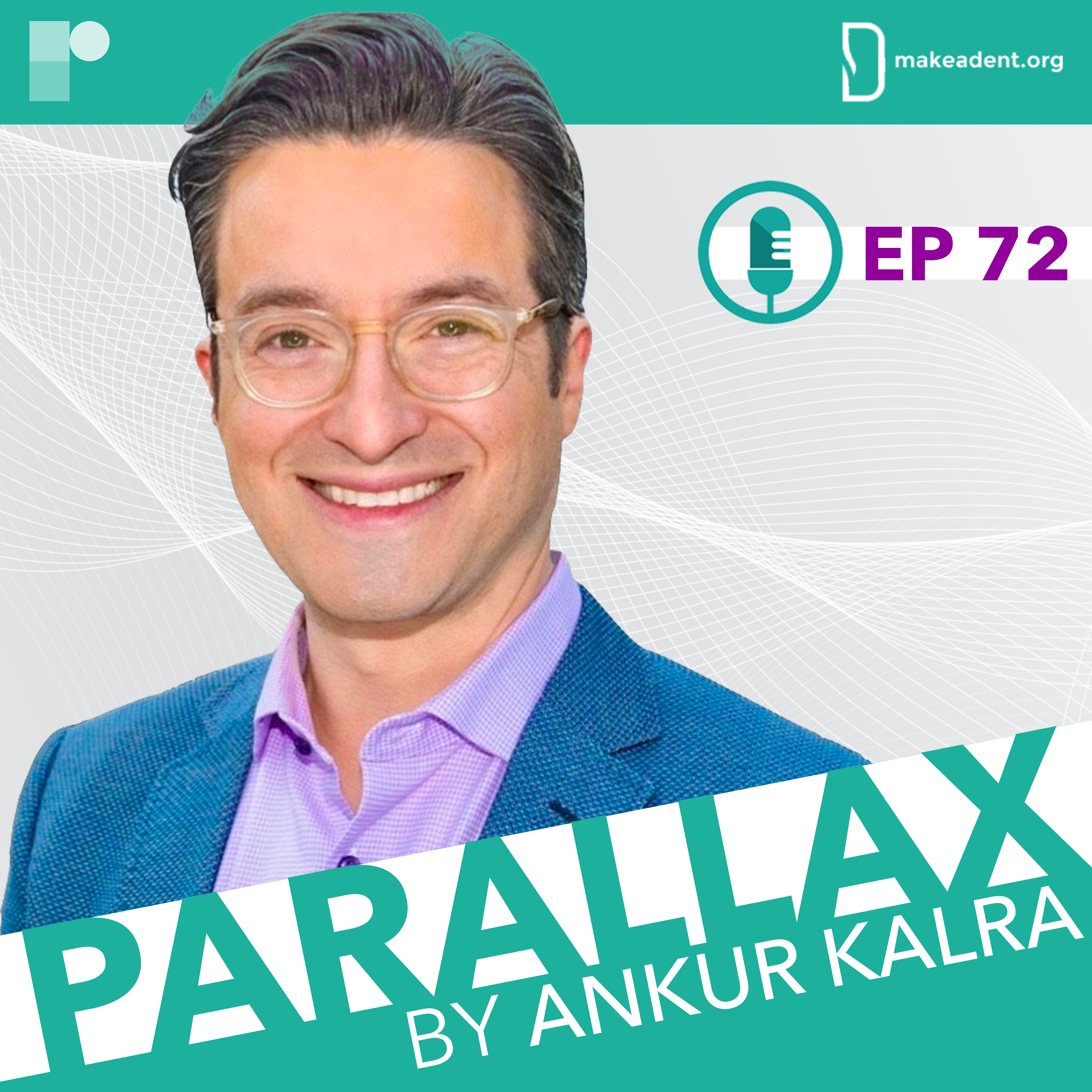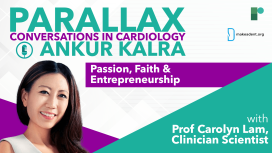
Even though Dr Fisher was excelling in his chosen vocation, cardiovascular medicine, over time he lost his sense of purpose. Despite his success, he felt wounded and disconnected. His training predisposed him to suppress his emotions when faced with suffering and tragedy in order to be a better doctor. Today, Dr Fisher is at the forefront of the campaign to end clinician burnout.
This week’s guest on Parallax is Dr Jonathan Fisher Cardiologist and Organizational Well-Being and Resiliency Leader at Novant Health.
In this insightful and solution seeking episode, Dr Fisher shares how his journey to build a well-balanced relationship with his profession paved a way for his role as Organizational Well-Being and Resiliency Leader. Dr Kalra and Dr Fisher discuss the need for a more human faced medical education and an open dialogue about wellness and emotional wellbeing. They talk about interventions that can have huge impact on individuals and institutions alike.
What are the warning signs of burnout? How can institutions tackle systemic problems? What are some of the conversations that can help? What is Dr Fisher’s advice to our listeners?
Follow this link to learn more about Ending Clinician Burnout Global Community: https://endingphysicianburnout.com





What is the Global Cardiology University project? How does Dr Anavekar encourage trainees to re-examine their role in patient care? What is his advice to our listeners?

As Dr Kalra asks Dr Rao about the ways in which early career faculty members can get involved with the organization at a state level. Dr Rao shares his insider tips and highlights key events where individuals can further their participation.
How can you get involved with your local ACC chapter? How can you improve your leadership skills? What is Dr Rao’s advice for our listeners?

He explains how the complexity of nutrition and the compounds generated by the gut microbiome can impact our health. We learn more about three compounds produced by our gut microbiome that have a strong connection with heart disease.
Through this conversation, Dr Vuyisich invites us to reframe our approach to nutrition and prevention as a question of food education and data-driven science.





